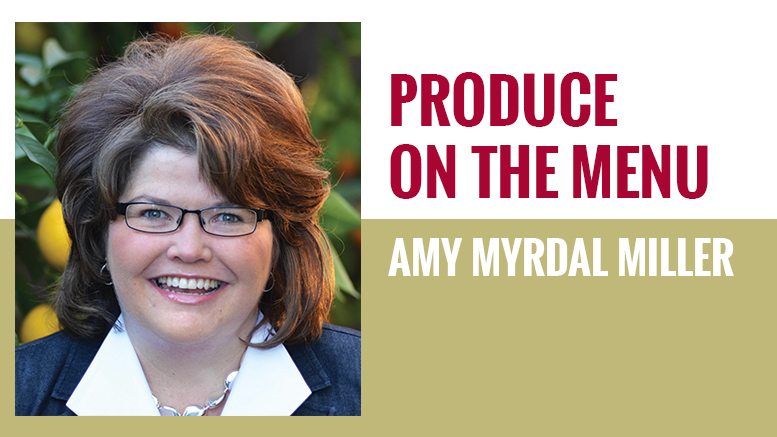Finding Those Potato Moments
October 19, 2021 | 4 min to read
During a visit to North Dakota, the author savored various potato dishes, although some failed to impress, particularly a bland grilled cheese paired with stale chips. The highlight was reading the Hall Family Potato Cookbook, which highlighted the nutritional benefits and diverse varieties of potatoes. In an interview with Cary Hoffman of MountainKing Potatoes, he discussed the shift toward flavor-focused varieties and the rising demand for baby potatoes and unique types in foodservice, indicating a promising future for potatoes on American menus.

Originally printed in the September 2021 issue of Produce Business.
I was in North Dakota recently visiting family up and down the Red River Valley and eating potatoes with nearly every meal. I enjoyed Tater Tots at the Dairy Queen near my home in Park River, I devoured an upscale Tater Tot hotdish at 701 in Fargo, and I munched with quizzical irritation on the boiled, smashed, deep fried fingerling-type potatoes doused with mayonnaise, honey, and Sriracha at Rosewild in the hip new Jasper hotel on Broadway in Fargo. I’m not sure what the breakfast chef intended, but I was irritated that so much cloyingly sweet sauce covered up potentially great potato flavor.
But wait, there’s more! I also ate barbecue potato chips with my grilled cheese at Teddy’s, a new downtown Fargo restaurant designed to inspire interest in the Theodore Roosevelt Presidential Library and Museum slated for construction in the Badlands of western North Dakota. President Roosevelt may have been legendary, but that bland grilled cheese and stale potato chips were not.
I ate one fresh-cut French fry off my husband’s plate at lunch one day. One was enough. While the creamy-on-the-inside, crunchy-on-the-outside texture was perfect, the flavor was awful, perhaps due to using potatoes from last year’s crop. Seasonality in potatoes is something I hope more chefs begin to pay attention to, ensuring the diner gets a phenomenal potato experience every time.
The best potato moment of this trip was not eating potatoes but reading history and recipes in the Hall Family Potato Cookbook, a self-published cookbook released in the mid-1990s by a local potato growing family. I loved how they emphasized the nutrition benefits of potatoes while also talking about the traits of specific varieties, why some varieties work well for chips or fries while others are perfect when simply boiled and enjoyed plain. I smiled when I read this; that’s how my mom most frequently served potatoes for family meals.
What does the future look like for potatoes on American menus?
These experiences aligned beautifully with my plans to interview Cary Hoffman for this column. Cary is the owner of MountainKing Potatoes, a grower-packer-shipper, and Schoenmann Produce, a produce distributor based in Houston. MountainKing grows potatoes in Texas and Colorado, and they partner with growers in these states as well as in California. He and his team have worked tirelessly since the mid-1980s to bring to market the world’s best tasting potatoes, seeking out varieties suited for foodservice as well as retail.
Cary and I talked about market trends in foodservice. I laughed out loud when he said, “Bigger is better in Texas,” when talking about local demand for Russet-type potatoes, especially in barbecue restaurants. “But our other foodservice customers are going for smaller sizes in reds and golds,” says Hoffman.
I asked how many of his foodservice customers care about the flavor and texture of potatoes or if they just specify by colors and sizes. He said he’s seeing more customers who are seeking better flavors and creamier textures for gold potatoes. His farming operation assesses new gold varieties based on how they compare to a Yukon Gold profile for appearance as well as flavor and texture.
Cary also talked about the growth in demand for baby potatoes, medleys of various colors, and fingerlings in foodservice, trends that are also appearing in retail potato sales. “The more upscale the restaurant the more interested they are in new varieties and smaller sizes,” he asserted.
I closed our discussion asking if he thinks there are opportunities to sell potatoes by variety versus by size and color. Cary talked about new varieties they are growing in Colorado to test demand for variety-specific marketing. We had a robust discussion about these two varieties and where demand may be created in specific foodservice sectors.
With a leader like Cary growing and marketing potatoes, I have no doubt that the future for fresh potatoes in foodservice is loaded with possibilities to grow demand and appreciation for potatoes across American menus.
Amy Myrdal Miller, MS, RDN, FAND is a farmer’s daughter from North Dakota, award-winning dietitian, culinary nutrition expert, and founder and president of Farmer’s Daughter Consulting, Inc. She is consultant for the Produce for Better Health Foundation, a member of the Texas A&M AgriLife External Advisory Board, and a member of the Bayer Vegetable Seeds Horticultural Advisory Council. You can learn more about her business at www.farmersdaughterconsulting.com, and you can follow her insights on food and flavor on social media @AmyMyrdalMiller
5 of 14 article in Produce Business October 2021

